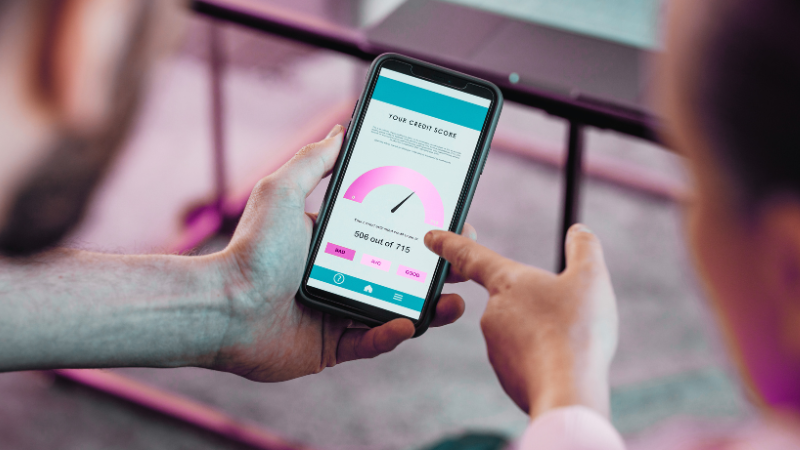If you’re not traditionally or formally employed but still generate a decent income, you may become frustrated that you cannot apply for a mortgage without hiccups.
In the UK, a non-standard mortgage is known as a “complex income”, and this type of income is notorious for introducing hurdles when applying for any sort of credit, including a mortgage.
Of course, complex income mortgages exist, and if you know where to find them, what the eligibility criteria are, and how to apply for them, you’re on the right path to getting the mortgage you’re dreaming of.
Below, we provide an overview of complex income mortgages and everything you need to know before you make that first application.
What is Complex Income?
Speak to a freelancer, self-employed individual, or investor who earns their income through alternative means about acquiring finance, and you’ll most certainly get sighs and rolled eyes.
These individuals are often considered high-risk or find it nearly impossible to prove affordability and get loans.
It’s true; having a full-time salaried job makes it far easier to prove earnings and get a mortgage when presenting payslips. Driving your own source of income makes things trickier.
When earning a complex income, the application process for a mortgage is more challenging but possible.
You’ll need to provide additional documentation and put in a little (or a lot of) extra work to ensure your application is approved.
Does a Complex Income Make a Mortgage Impossible?
Most freelancers, contractors, and self-employed individuals shy away from applying for finance due to the challenges presented by the application processes.
But that doesn’t mean you should let your dream home or property slip by because you assume your application won’t be processed.
It’s entirely possible to get a mortgage with a complex income. Proving your income amount is the most important part of the process.
The biggest challenge comes in when mortgage providers use automated approval systems or basic approval processes instead of granting loans on an individual basis, focused on the merit of each case.
That’s where a broker comes in. If you have a mortgage broker, they can bypass the standard and automated processes and help you acquire a mortgage, even though your non-standard income is considered “complex” or risky.
What Mortgage Providers Want to Know About Your Income
Mortgage providers will want to know two main things:
- Do you earn enough to cover the monthly instalments of your loan?
- How secure is your source of income? Will it maintain or sustain for the duration of the mortgage?
If you’re new to freelancing, for instance, how can the lender be sure that in 30 years’ time, you’ll still be freelancing and generating the correct amount to cover your mortgage payments?
With these questions in mind, proving to the lender that you can satisfy their requirements may be easier. There’s no stipulation that you must have a full-time job to apply for a mortgage.
The following income types are generally accepted by lenders, even though the processes may be more challenging:
· Self-Employed
If you’re self-employed, lenders see this as riskier than having a salaried monthly income.
That’s because self-employment income can fluctuate. One month, you could make a very high income; the following month, you could make nothing – there are no guarantees.
The standard request from mortgage providers is to see 3 years of financials for your business.
If you don’t have 3 years of financials because your business is newer than that, there are some lenders who will accept 12 months financials or less, or will settle for a letter from your accountant, detailing the amount you generate each month for the last stipulated period.
· Contractor
Contractors typically work on projects over a specified period. Mortgage providers will accept contractor work if you can present your contract detailing the term of the contract.
In some instances, lenders will want to ensure there is a specific amount of time left on the contract or the possibility of renewal.
· Zero Hours Contracts and Temporary Workers
Temporary work and zero-hour contracts can pose challenges when applying for a mortgage, as it’s difficult to prove that the income you receive is and will be regular.
Applicants can provide recent payslips and bank statements to prove historical work hours.
If these show that you’re working and generating a certain amount, the lender may view the application more favourably.
· Income from Child Maintenance
If you want to apply for a single-parent mortgage, you can use child maintenance as proof of a portion of your income.
The lender will want to see that the maintenance payments are regular and sufficient.
In most instances, the mortgage provider will want to see the court order or CMS letter stipulating the maintenance terms, but if you and your ex-partner have a private agreement, legal evidence of this will be required.
Of course, this income can only be used if the maintenance payments are expected for the foreseeable future.
You’re less likely to get approved if there’s only a year or two remaining maintenance payments.
· Living Off Benefits
Several government benefits can be used as proof of income when applying for a mortgage.
Applying for a mortgage on benefits can be challenging, and it’s recommended that you use a mortgage advisor to help you approach the right lenders and ensure that your application is perfect before submitting it.
· Living Off Investment Profits
Most lenders will accept income that’s generated from a trust fund, share portfolio and other investment profits.
It won’t be possible to prove income through payslips, but you can provide bank statements, tax returns, and portfolio statements.
Mortgage providers will want to see how stable the investments are and the likelihood of sustaining these figures for the duration of the mortgage.
· Dividend Income
If you own a company, you may choose to pay a small salary to yourself and then make up the balance of your income through dividends.
Because most people do this for the best possible tax outcomes, and it’s not a true indication of a low salary, most mortgage providers will consider dividend income as suitable income.
· Income Earned Through Apprenticeship
Apprenticeship incomes are typically low, which means that using it as income proof may be possible, but the mortgage amount you’re offered will be low.
You can mitigate this problem by asking a family member to sign as a guarantor or by entering into a family offset mortgage.
Another viable option is to apply for a shared ownership, which means that the required income and deposit for each individual will be lower.
Additional Must-Know Details About Complex Income Mortgages
Below are a few additional snippets of information that may prove helpful if you’re considering a complex income mortgage:
- You cannot use funds earned though professional gambling or cash-in-hand jobs as proof of income.
- Most lenders will provide mortgages of up to 4 to 4.5 times your annual salary, but it’s not always guaranteed with complex incomes. The offers may be lower due to the lender’s perceived risk.
- While rare, you can get a mortgage with zero income, but you’ll need to show how you will pay for the loan. Perhaps you have a contract starting in the future or receive an allowance – chatting with a broker about your options is important in this type of scenario.
- Some lenders will accept commissions and bonuses as income, but only acknowledge a certain portion. For instance, they may only count 50% of your annual bonus towards your income.
Complex Income Mortgages in the UK Conclusion
Speaking with a professional mortgage broker about your individual situation is the best way to ensure that you’re pointed in the right direction.
While complex income mortgages are more challenging than regular mortgages, they’re certainly possible and achievable if you go about them in the correct manner.
Call us today on 03330 90 60 30 or contact us to speak to one of our friendly advisors.
















